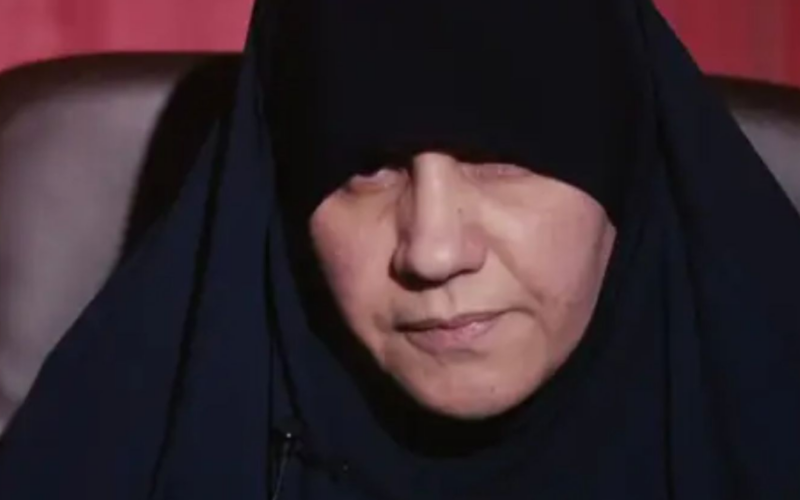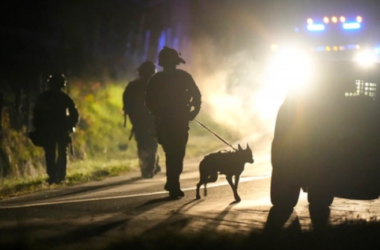The first wife of Abu Bakr al-Baghdadi, the late leader of the jihadist group Islamic State (IS), has been sentenced to death by an Iraqi court, according to the country’s judiciary. The Karkh Criminal Court convicted her of collaborating with the extremist organization and detaining Yazidi women, as reported by the Supreme Judicial Council.
Identified as Asma Mohammed, also known as Umm Hudaifa, she faced no immediate comment from her lawyer. However, in a recent BBC interview, she denied any involvement in IS’s atrocities, including the kidnapping and enslavement of Yazidi women.
Umm Hudaifa was married to Baghdadi during his reign over large parts of Iraq and Syria, territories home to nearly eight million people. Following IS’s military defeat in the region in 2019, US forces raided Baghdadi’s hideout in north-west Syria. Baghdadi detonated an explosive vest, killing himself and two of his children. Two of his four wives were also killed in the operation. Umm Hudaifa was not present during the raid, as she had been detained in southern Turkey in 2018 while living under a false identity. She was extradited to Iraq in February this year and held in custody pending investigation for terrorism-related crimes.
UN investigators have provided substantial evidence that IS committed genocide and numerous international crimes against the Yazidi religious minority, including forced conversions, killings, and the enslavement of thousands. Yazidi women and children were subjected to brutal abuses, including serial rape and other forms of sexual violence.
In an interview with the BBC, Umm Hudaifa expressed shame and sorrow over the Yazidi women’s plight and claimed to have confronted Baghdadi about the atrocities. She denied accusations of complicity in the kidnapping and enslavement of Yazidi girls and women, charges which have been brought against her in a civil lawsuit by Yazidi survivors.
Iraqi courts have issued numerous death sentences and life prison terms to individuals convicted of terrorism-related charges in recent years. Human rights organizations have criticized these trials, arguing that the charges are often too broad, the proceedings rushed, and based on confessions obtained under duress.








